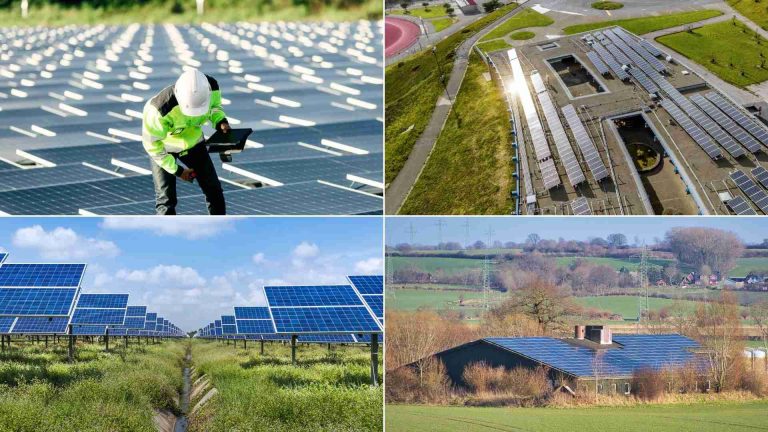The last time the Florida Public Service Commission updated its Energy Efficiency Act rules was 27 years ago. A lot has changed since 1993 – at that time cassette tapes were still a thing and most Americans had never heard of, much less used, the internet. Over the past three decades, a lot has also changed for energy efficiency technologies and POLICIES like the ones we are considering today.
The fact is, even as the nation has marched forward with utility efficiency programs, Florida has fallen further and further behind. In 2019, savings from FL utility efficiency programs were just 1/5th the national average. As a consequence, instead of fully investing in the proven least-cost resource, energy efficiency, Florida’s electric customers are paying for far more expensive power generation, resulting in average monthly bills that are among the TOP TEN most expensive in the nation. The reason for this problem is simple. Florida’s energy efficiency policies are undeniably out of date, and out of step with modern practices.
When considering the FEECA goals in 2019, Commissioners clearly recognized that there were structural problems that must be addressed by revising the FEECA rules. The rulemaking process we are now in must resolve the underlying problems that have driven Florida’s efficiency savings into the ground, but to do so we must expand the scope of the rule revisions beyond what Staff has included in its initial draft.
In previous filings, Staff noted the frequent “tensions” that have regularly complicated FEECA proceedings. But Staff’s revisions address only the timing of when goals and program plans are considered. We agree that efficiency input assumptions should be better aligned between the goal and program planning phases. But the process changes Staff proposes do not go nearly far enough to address the substantive issues – and simply ignore key issues specifically raised by Commissioners as reason for reforming the FEECA rules – namely use of the two-year screen and RIM tests. This point cannot be overstated – Florida is the only state to use these practices and the consequences are clearly detrimental to efficiency.
Evaluation, measurement, and verification is unarguably industry standard practice for utility efficiency programs, which could replace the two-year screening practices used only in Florida – practices that have no empirical basis in fact. This should be a real concern for the Staff (and everyone else) – but the initial rules revisions circulated in December are silent on the subject.
Nor do Staff’s revisions reflect any aspect of the evolution that has taken place around energy efficiency cost-effectiveness practices across the country over the past 30 years. For instance, just last year a definitive report funded by the Department of Energy – called the National Standard Practice Manual – was issued specifically for the purpose of aiding local states to modernize their cost-effectiveness analysis practices. But Staff’s initial rules lack any of the improvements outlined in the report.
Both of these subjects – switching to a more appropriate primary test for cost-benefit analysis, and using empirical evaluation for free ridership – must be included in the FEECA rule reforms that the Commission ultimately adopts. If Florida changes these two practices, it will achieve superior efficiency performance results. It’s that simple.
I also want to affirm that I believe the Commission should have clear, accurate, and useful information on the rate, bill, and participation impacts of efficiency goals and plans. These impacts should be considered concurrently with cost-effectiveness analysis results, thereby enabling the Commission to weigh and balance the total financial benefit of lower utility system costs (and corresponding lower customer bills), with the rate effect of efficiency investments – just as the Commission would for comparable investments in power generation. Again, the National Standard Practice Manual provides substantial details on how to conduct rate, bill, and participation analysis.
One more subject that must be addressed: There is also a tremendous need for energy efficiency to assist the millions of hard-working Floridians who struggle financially to pay for unnecessarily high energy bills and still afford basic needs like food, rent, and medicine. The financial effects of energy efficiency investments for low-income households have been a major topic in FEECA proceedings for years, but no mention is made in the draft rules.
While not an exhaustive list, each of these matters is absolutely critical issues that must be included in the scope of FEECA rule reform. I will save further discussion on these topics to our written comments and subsequent workshops, but I am formally requesting that the scope of the FEECA rule revisions be opened fully to these and other topics that deserve to be addressed in modern energy efficiency rules.
To that end, SACE also asks that Staff and the Commission open the FEECA rulemaking process to include rule 25-17.008, as well as the corresponding Cost-Effectiveness Manual for Demand Side Management Programs and Self Service Wheeling Proposals, which directly relate to the issues I described earlier. And as a matter of process, we would propose that the period for filing written public comment be 30 days from this meeting, and we request that a second workshop be held 60 days from today (potentially led by the Commission members), followed by another 30 day period for submitting written comment.
Finally, I want to re-emphasize that after nearly 30 years, it is time Florida adopted modern policies for energy efficiency in accordance with standard industry practices. Doing so will fulfill Florida’s statutory commitment to energy efficiency, increase investment in this proven least cost energy resource, directly lower customer bills. No matter how you look at it, energy efficiency has a vital role to play in our energy future, and the Florida Public Service Commission’s energy efficiency rules should reflect that fact.
I want to thank you for the opportunity to speak, and commend the Commission, Staff, and everyone making the time to contribute to this effort to reform Florida’s Energy Efficiency Act rules. We look forward to submitting written comments and participating in future workshops. Again, thank you.
— Forest Bradley Wright, Energy Efficiency Director
In this post
Energy Efficiency Utility Decarbonization Energy Justice Florida








